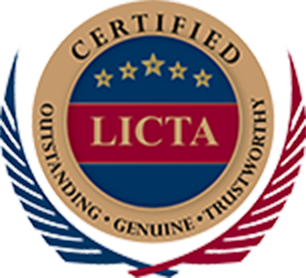Introduction
Under Malaysia Settlement Income Deemed Tax, income arising from certain settlements may be treated as the settlor’s taxable income instead of the beneficiary’s.
Section 65 of the Income Tax Act 1967 (ITA) governs situations where income generated under a settlement — especially when the settlor retains control, revocation power, or benefits — is deemed assessable on the settlor.
This article explains how Malaysia’s settlement deeming provisions apply to minors, revocable settlements, and trusts.
When Settlement Income Is Deemed the Settlor’s Income
1️⃣ Settlement for an Unmarried Relative Under 21
If income from a settlement benefits a relative who is under 21 and unmarried at the beginning of the basis year, the income is treated as the settlor’s — not the beneficiary’s.
Conditions:
- Income arises under the terms of a settlement.
- During the settlor’s lifetime.
- Income is payable or applied for the benefit of a relative under 21 and unmarried.
Definition of “Relative” (per Section 65(1)):
| Relationship | Examples |
| Child | Biological, step, adopted child, or a child maintained wholly or partly by the settlor |
| Others | Spouse, grandchild, sibling, uncle, aunt, nephew, niece, cousin |
Exceptions (s.65(1) not applicable):
- Relative is married (even if under 21).
- Relative is 21 or older.
- Beneficiary is not a relative.
- Settlor has passed away.
2️⃣ Revocable Settlement
A revocable settlement allows the settlor or another person to revoke or alter the settlement, whether immediately or in the future.
Key Scenarios:
- General Power to Revoke – Settlor can cause assets/income to revert to them or their spouse.
- Revocation Without Consent – Settlor alone can end the settlement.
- Revocation With Consent – Revocation requires another person’s approval.
- Immediate or Future Revocation – Power can take effect immediately or later.
If the settlement includes such revocation rights, income generated is deemed to be the settlor’s income and may be aggregated under Section 45(2) ITA.
Special Case:
If revocation occurs due to the beneficiary’s death, the resulting income is not deemed the settlor’s income.
3️⃣ Income Used by Settlor Who Controls Settlement
When the settlor, a relative, or a company they control:
- Uses income from the settlement for their own purposes,
- Whether through borrowing or otherwise,
The amount used is deemed settlor’s income.
If the actual beneficiary has already paid tax, the DGIR may grant a tax refund.
4️⃣ Settlement Creating a Trust
If the settlor transfers assets to a trust body, income from those assets may be deemed the settlor’s income if:
- The settlor or their relatives use trust income for personal benefit, or
- The settlor retains the power to revoke the trust.
No Relief for Business Losses:
If the trust incurs a loss, the settlor cannot claim that loss as a tax deduction.
5️⃣ Settlement Without a Trust
Where no trust is created, the settlor’s income equals:
- The beneficiary’s statutory income from the property; or
- Any amount determined by the DGIR where income or accumulated income is used by the settlor or their relatives.
The DGIR determines the source and place of derivation of such income for tax purposes.
6️⃣ Multiple Settlors
If there are two or more settlors, each settlor is assessed only on the portion of income related to assets they personally contributed to the settlement.
Settlement Made to a Minor
A minor is anyone below 18 years old.
Under the ITA 1967, minors are not exempt from tax if they earn Malaysian-sourced income.
Assessment Options:
| Option | Who Is Taxed |
| a) | The minor (own name) |
| b) | Parent or guardian |
| c) | Appointed agent by DGIR |
When a Trust Exists:
- Income-producing assets transferred by settlor.
- Income is taxed on the trust body until the minor reaches the specified age.
- Once received by the child, income is no longer taxable.
Application of s.65(1):
| Situation | Tax Treatment |
| Child below 21 & unmarried at start of YA | Deemed settlor’s income |
| Child 21 or married at start of YA | Not deemed settlor’s income |
Key Takeaways
- Settlement income may be deemed the settlor’s if they retain benefit or control.
- Applies to relatives under 21, revocable settlements, and trusts.
- DGIR determines source and allocation of deemed income.
- Losses from settlement trusts cannot offset settlor’s income.
- Always maintain documentation proving settlement purpose and structure.
ANC Group – Your Personal Tax Advisor
Tax consulting is the core service of ANC Group. Our tax professionals provide clients with comprehensive tax support and guidance. We offer tax consulting and compliance services for expatriates, entrepreneurs, and listed and non-listed companies.
Our tax consulting services include business tax, transaction tax, personal tax, and corporate income tax. We don’t just guide you in interpreting and applying complicated taxation rules, but to explore new opportunities and business trends.
ANC Group keep you abreast with Malaysia tax updates and any changes in the local regulations.
We work closely with industry specialists, authorities, and associated professionals within ANC Group to provide the best-in-class integrated tax planning solutions. ANC specialists coordinate the accounting and taxation services to bring your business to success.
If you need professional tax advisory services regarding the Malaysia Income Tax Act 1967, our team is ready to assist you. Contact us here to discuss how we can support your business.









